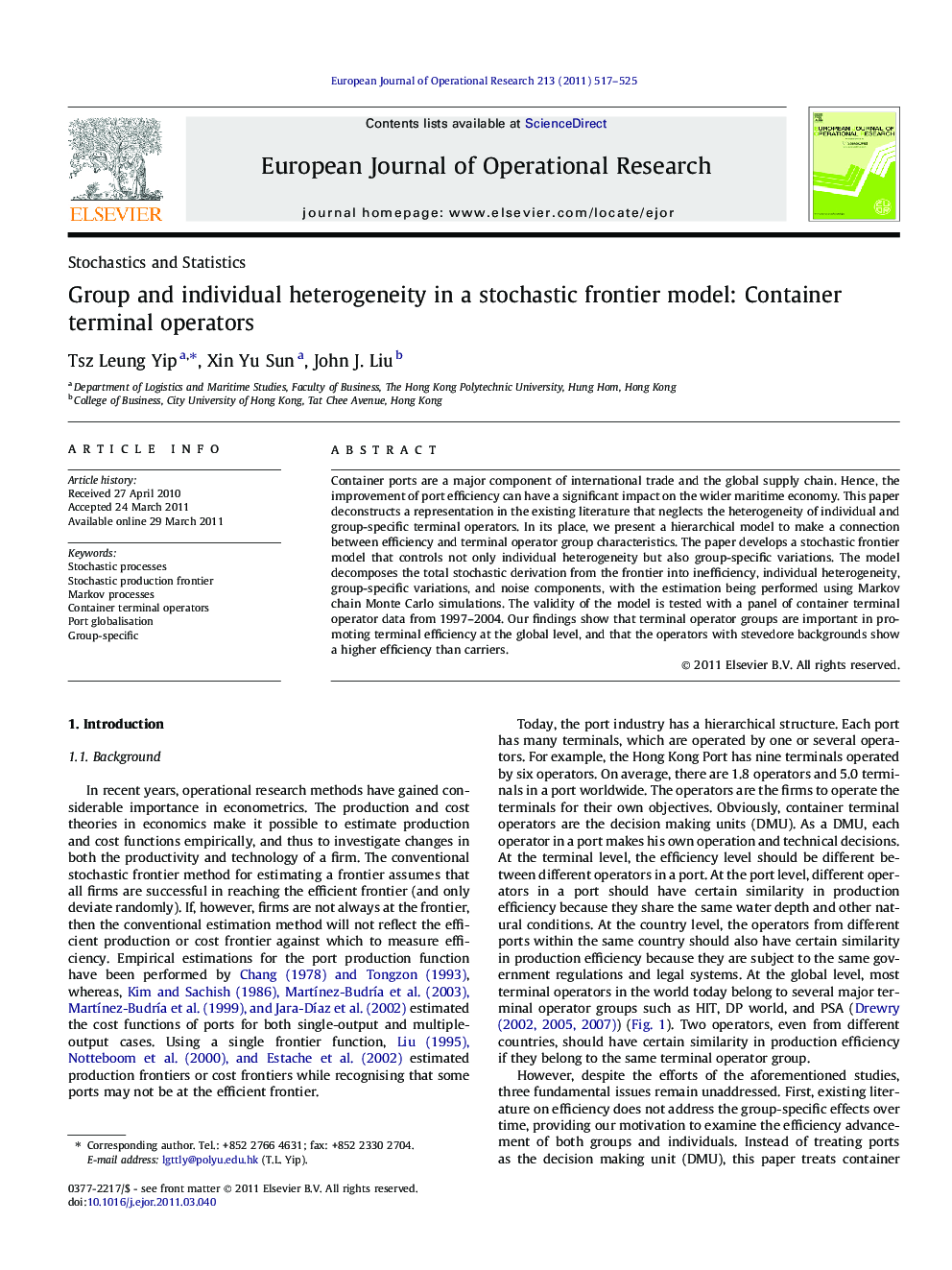| Article ID | Journal | Published Year | Pages | File Type |
|---|---|---|---|---|
| 480334 | European Journal of Operational Research | 2011 | 9 Pages |
Container ports are a major component of international trade and the global supply chain. Hence, the improvement of port efficiency can have a significant impact on the wider maritime economy. This paper deconstructs a representation in the existing literature that neglects the heterogeneity of individual and group-specific terminal operators. In its place, we present a hierarchical model to make a connection between efficiency and terminal operator group characteristics. The paper develops a stochastic frontier model that controls not only individual heterogeneity but also group-specific variations. The model decomposes the total stochastic derivation from the frontier into inefficiency, individual heterogeneity, group-specific variations, and noise components, with the estimation being performed using Markov chain Monte Carlo simulations. The validity of the model is tested with a panel of container terminal operator data from 1997–2004. Our findings show that terminal operator groups are important in promoting terminal efficiency at the global level, and that the operators with stevedore backgrounds show a higher efficiency than carriers.
► We decompose individual and group-specific variations in frontier analysis. ► This study is at the terminal level rather than port level. ► Inefficiency is overestimated by a homogeneous frontier analysis. ► Terminal operator groups generate more terminal throughput. ► Terminal operator groups are more efficient than individual operators.
